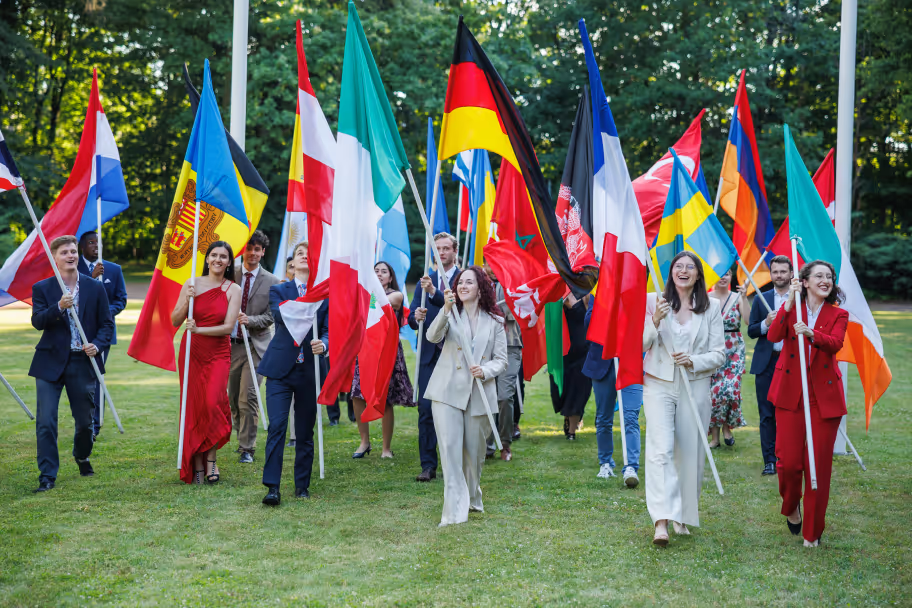Recruitment process
Join our vibrant academic community by following our streamlined recruitment process. Begin by submitting your application online, followed by participating in an interview with our selection committee. Take the first step toward your future at Natolin today!



Admissions for the
academic year 2027-2028 will open in October 2026.
- Application window: mid-October to mid-January
October
January
February – March
March – May
May – June
May – July
August
September

Online application open for the next academic year
- Choice of up to two study programmes
- Online application: CV, motivation letter, scholarship application, diplomas and transcripts, two recommendation letters, language proficiency certificates
- No application fee

Deadline for submitting the complete online application
- Applications close before midnight
- All completed and submitted applications will be read and evaluated

Pre-selection of candidates
- All submitted applications go through a pre-selection phase
- Candidates are evaluated on the basis of their motivation letter, language skills, academic and professional experience, reference letters and other relevant elements
- Candidates evaluated positively move onwards to the interview phase

Interviews
- National committees:
in-person interviews in the country of citizenship
Online Selection Committees:
online interviews whenever there is no National Selection Committee in the country of citizenship - During the interview, candidates are evaluated on their motivation, knowledge and language skills

Admissions decisions
- Candidates are informed about their admissions decisions based on the interview rankings (admission / reserve list / rejection)
- Candidates on the reserve list may still be admitted in the subsequent weeks
.avif)
Scholarships decisions
- Admitted candidates are informed about possible scholarships
- Scholarships can be assigned by national governments, regional authorities, private actors, or by the College of Europe itself

Kick-off of the Summer Language Academy & introductory courses
- Students who need to improve their language skills participate in online courses over the summer
- All admitted students follow the online introductory courses before the start of the academic year

Start of the academic year
- Students are expected to follow the onboarding modules before their arrival on campus
- Students arrive in Natolin one or two days before the start of the academic year
Eligibility
criteria
The European Interdisciplinary Studies programme targets university graduates from various disciplines, including law, economics, political or social sciences, security and strategy, history, philosophy, geography, linguistics or journalism, and who are interested in European integration from a broad and interdisciplinary perspective.
Graduates from other fields, like natural sciences or engineering, who show high academic achievement and interest in European studies, are also encouraged to apply.
Graduates from other fields, like natural sciences or engineering, who show high academic achievement and interest in European studies, are also encouraged to apply.
Academic Requirements
- Bologna Master’s degree or equivalent (240 ECTS) in a relevant discipline
- Law, economics, political or social sciences, security and strategy, history, philosophy, geography, linguistics, journalism but also natural sciences and engineering
- Interest in European Affairs, European Integration, Geopolitics, International Relations, Foreign Policy, Security, Energy Studies
Language Proficiency
- Non-native English speakers must provide proof of English proficiency at a B2 level minimum.
- Non-native French speakers must provide proof of French proficiency at an A2/B1 level minimum. If you don't feel very confident in French, don't worry—we offer an online Summer Language Academy.

Widen your perspective on Europe
Newsletter
